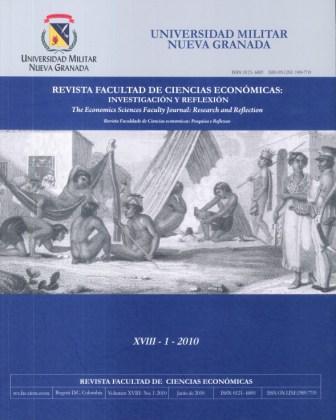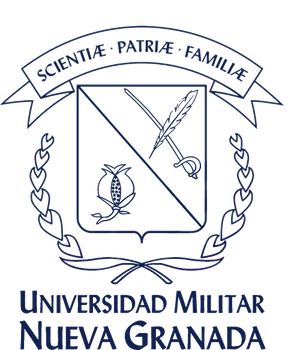The role and context in moral judgment competency: business students vs. bureaucrats
Abstract
This investigation presents the results of the moral judgment competence, by means of the evaluation of the index C, between two roles and two different contexts, that of students of business administration and that of bureaucrats. The results showed a minor value of the index C of the bureaucrats compared with the value of the students, which it implies that the role and the public organizational context influence negatively the value of the index C.Downloads
Languages:
esReferences
Barba, B. (2007), Experiencia y construcción personal de la moralidad, estudio de seis casos en Aguascalientes, Revista Mexicana de Investigación Educativa, 12(35), 1209-1239.
Desplaces, D., Melchar, D., Beauvais, Laura., & Bosco, S. (2007), The Impact of Business Education on Moral Judgment Competence: An Empirical Study, Journal of Business Ethics, 74:73-87. http://dx.doi.org/10.1007/s10551-006-9221-3
Haan, N, Langer, J. & Kohlberg, L. (1976), Family Patterns of Moral Reasoning, Child Development, 47, 1204-1206. http://dx.doi.org/10.2307/1128466
Kant, M. (1980). Fundamentación de la metafísica de las costumbres (Traducido por M. García). Madrid: Espasa-Calpe. (Original publicado en 1785.)
Kitwood, T. (1996). La preocupación por los demás, Una nueva Psicología de la conciencia y la moralidad, (E. Álvarez Sáez, Trad.), Bilbao: Desclée de Brouwer.
Kohlberg, L. (1958). The development of modes of moral thinking and choice in the years 10 to 16. Unpublished doctoral dissertation, University of Chicago, EE.UU.
Kohlberg, L. (1964). Development of moral character and moral ideology. En M.L. Hoffman y L.W. Hoffman, ed., Review of child development research, Vol. I. New York: Russel Sage Foundation, S. 381-431.
Kohlberg, L. (1992). Psicología del desarrollo moral, (A. Zubiaur Zarate, Trad.), Bilbao: Desclée de Brouwer.
Krebs, D., Denton, K.L., Vermeulen, S.C., Carpendale, J.I. & Bush, A. (1990). The structural flexibility of moral judgment. Journal of Personality and Social Psycholog, en imprenta.
Lane, M. & Schaupp, D. (1989), Ethics In Education: A Comparative Study, Journal of Business Ethics, 8:943-949. http://dx.doi.org/10.1007/BF00383429
Lawson, R, (1993), The new technology of new management in the personal socialservices. En P, Taylor-Goobyy R, Lawson (eds), Markets and Managers: Mew Issuesin the Delivery of Welfare, Buckingham: Open University Press.
Lind, G. (1982). Experimental Questionnaires: A new approach to personality research. In A. Kossakowski & K. Obuchowski (Eds.), Progress in the Psychology of Personality (pp. 132144). Amsterdam: North-Holland.
Lind, G. (1989). Measuring moral judgment: A review of 'The Measurement of Moral Judgment' by Anne Colby and Lawrence Kohlberg. Human Development, 32, 388-397. http://dx.doi.org/10.1159/000276491
Lind, G. (1995). The meaning and measurement of moral judgment revisited. Paper presented at the SIG MDE, AERA meeting, San Francisco, April 1995. Electronic version: http://www.unikonstanz.de/ag-moral/mjt-95.htm.
Lind, G. (2004). The meaning and measurement of moral judgment competence revisited - A dual-aspect model. En D. Fasko y W. Willis (Eds.), Contemporary Philosophical and Psychological Perspectives on Moral Development and Education (pp-185-220). Cresskill. NJ: Hampton Press.
Lind, G. (2007). La moral puede ense-arse: Manual teórico práctico de la formación moral y democrática. México: Trillas.
Lind, G. (2008), TheMoral Judgment Test (MJT) SpanishVersion (1977-2007), última revisión: Enero 12, 2008, Constanz: Lind, G.
Lind, G. (2009, julio). Is morality a competence? Can it be taught? Ponenciapresentada en la conferencia Can morality be taught? Is it a competence?,Konstanz, Alemania.
Lind, G. & Wakenhut, R. (1985). Testing for moral judgment competence.En G. Lind, H.A. Hartmann y R. Wakenhut, Eds., Moral Development and the Social Environment (pp. 79-105) Chicago: Precedent Publishing.
Lind, G.(Ed). (1999). Una Introducción al Test de Juicio Moral (MJT), Constanz: Lind, G.
Lind, G. & Schillinger, M. (2007), Development of a Third Dilemma for the Moral Judgment Test: Accountant's Dilemma, University of Konstanz, Konstanz, Alemania.
Ordo-ez, C., Mejía, J. & Castellanos, S. (2006), Percepciones estudiantiles sobre el fraude académico: hallazgos y reflexiones pedagógicas, Revista de Estudios Sociales, 23, 37-44.
Patenaude J., Niyonsenga T. & Fafard D. (2003), Changes in students' moral development during medical school: a cohort study, Canadian Medical Association. Journal, 168(7), 840844.
Piaget, J. (1974), El criterio moral del ni-o, Nuria Vidal (trad.), Barcelona: Fontanella.
Schillinger, M. (2006).Learning environment and Moral Development: How university education fosters moral judgment competence in Brazil and two German-speaking countries. Konstanz: Shaker Verlag.
Shenkir, W. (1990). A perspective from education: business ethics, Management Accounting, 72(12), 30-33.
Trevi-o, L., Butterfield, K. & McCabe, D. (1998). The Ethical Context in Organizations: Influence on Employee Attitudes and Behaviors. Business Ethics Quarterly, 8: 447-476. http://dx.doi.org/10.2307/3857431
Trevi-o, L. & Younghlood, S. (1990). Bad Apples in Bad Barrels: ACausalAnalysis of Ethical Decision-Making Behavior. Journal of Applied Psychology 75: 378-485. http://dx.doi.org/10.1037/0021-9010.75.4.378












